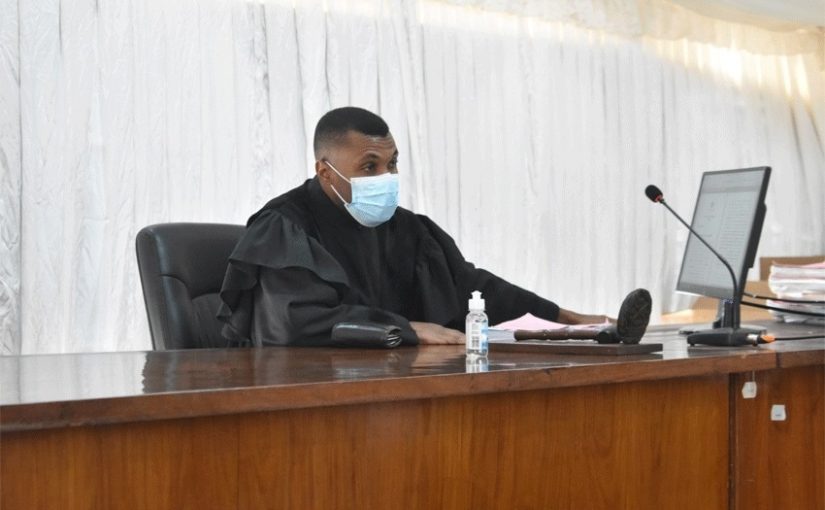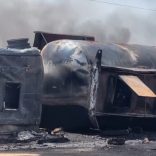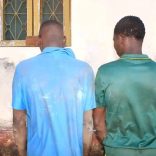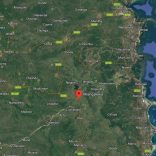Mozambique: Fuel truck explosion in Vanduzi kills four, injures ten
“Hidden debts” trial – 10 September 2021 – AIM reports

File photo: Domingo
- Defence lawyers try again to gag the press
At the start on Friday of the 12th day of the trial of 19 people accused of crimes in connection with Mozambique’s largest ever financial scandal, known as the “hidden debts” defence lawyers tried, for the third time, to gag the press, and for the third time the judge, Efigenio Baptista, rejected their request.
Jaime Sunda, the lawyer for Renato Matusse, a political adviser to former President Armando Guebuza, demanded that there should be no live broadcasting of the testimony given by his client. He claimed that broadcasting the image and the voice of Matusse would damage his right to honour and his good name.
Baptista replied that there was a clash of principles involved. The Mozambican constitution did indeed enshrine the right to honour and to one’s good name. But it also enshrined the principle of freedom of the press and that trials are public,
When two right of equal constitutional standing clash, “the court must decide which right prevails”, said Baptista. “And in this case, the court has decided that the trial is public. The court is not going to change its mind”.
“You can do whatever you think is right for the defence of your clients”, he told the lawyers, “but the matter has already been decided. You can make this request as many times as you like, but nothing will change”.
Sunda retorted that the defence lawyers will now appeal against the judge’s ruling.
Baptista had ruled to keep trial public, with live broadcasts, right at the start of the proceedings, and again on Thursday. But the lawyers are persisting – some of their clients clearly do not want the public to know what happened under the Guebuza.
An angry exchange occurred later in the morning, when defence lawyers claimed that prosecuting attorney Sheila Marrengula was using a parallel case file to which the defence did not have access. Both Baptista and Marrengula found the accusation absurd.
Marrengula pointed out that it was the Public Prosecutor’s Office which had carried out all the investigations on which the case file was based, The prosecution had gathered all the evidence, so of course it had its own copy of the case file – which was identical to the one in the possession of the court.
Baptista warned the lawyers he did not like the signs of disrespect some of them had been showing. “I am very patient, perhaps too patient”, he said. “This court does not want to take measures envisaged in the law, such as fining defence lawyers or removing them from the room. That is not my objective”.
He denied claims that he had shown any bias in favour of the prosecution, and pointed out that the defence had enjoyed plenty of time to consult the thousands of pages in the case file and its appendices. Some had come diligently to his chambers every day to consult the case, but others had not.
Marrengula insisted that the Public Prosecutor was behaving in this case in exactly the same way as in all other major cases. Furthermore, if any parts of the case file go missing in the court room, “we have back-ups. We don’t have to explain why we have copies, since it is we who collected the evidence”.
“I have a great love for this profession”, she added, “and I will not allow its purpose to be discredited”.
- Presidential adviser admits receiving 1.6 million dollars in assets from Boustani
Renato Matusse, who had once been a political adviser to former President Armando Guebuza, on Friday denied receiving a bribe of two million US dollars from the Abu Dhabi based group, Privinvest.
Instead, he admitted that his friend Jean Boustani, who is a senior Privinvest official, had purchased houses and other goods for him valued at over 1.66 million dollars.
Matusse is one of 19 people on trial before the Maputo City court on connection with the scandal of Mozambique’s “hidden debts”. Boustani played a key role in the scandal, spending large amounts of Privinvest money in bribing Mozambican officials and managers of the bank Credit Suisse.
Privinvest got its money’s worth since it became the sole contractor for three fraudulent Mozambican companies, Proindicus, Ematum (Mozambique Tuna Company) and MAM (Mozambique Asset Management), selling them vastly overpriced fishing and patrol boats, radars and other assets. According to the 2017 independent audit of the three companies, Privinvest over-invoiced Mozambique to the tune of more than 700 million dollars.
Matusse is facing charges of money laundering, embezzlement and trafficking in influence.
He claimed that Boustani never paid him directly. He sent Boustani the bank account numbers of the owners of the houses and cars he wanted, and Boustani paid them. They then transferred the assets to Matusse.
Matusse told the court that he first met Boustani in early 2013 in Guebuza’s office. He claimed the discussions were “innocuous”, but Boustani “was prepared to help us”.
“I saw him as an asset for us to penetrate countries in the Middle East”, Matusse said. “We didn’t talk about his company”.
Matusse insisted that his relationship was with Boustani, and not with Privinvest, as if a distinction could be drawn between the two.
Asked about Proindicus, the first of the fraudulent companies to be set up, Matusse said he knew nothing about it. He had also never heard of Andrew Pearse, one of the three Credit Suisse bankers who has admitted receiving bribes from Boustani.
But prosecutor Sheila Marrengula could show Matusse an email, dated 19 April 2013, which Pearse had sent to Matusse and to security official Antonio do Rosario. The email dealt with the Credit Suisse loan to Proindicus, which Pearse wanted to increase by 200 million dollars (Pearse was successful, and the loan to Proindicus eventually grew to 622 million dollars).
Matusse claimed he had never received this email, although he admitted that the email address was his. “I don’t know Pearse”, he said. “Perhaps he got my email address from Boustani. I wasn’t involved in the Proindicus project”.
He admitted that Boustani had spoken to him about Proindicus “but in generic terms”. His job as an adviser to Guebuza did not concern matters of defence and security.
Matusse said that Boustani probably did not understand how little power he wielded within the President’s office. Because he thought that Boustani could be “useful”, he never made the limited scope of his duties clear.
Matusse thought this was probably why Boustani’s relations with him cooled and “he stopped replying to my emails”.
This was effectively an admission that he had obtained over 1.6 million dollars in real estate and other assets from Boustani on false pretenses, by allowing the Privinvest executive to believe he was much more important in Mozambican politics than was really the case.
The trial has now been adjourned until Monday.
- Hidden debts: Don’t bring politics into the court, warns judge
Defence lawyers in the trial of 19 people accused of crimes connected with Mozambique’s largest financial scandal, known as the “hidden debts”, on Thursday demanded that Agriculture Minister Celso Correia be called as a witness.
This unexpected demand arose after one of the accused, Ines Moiane, the private secretary of former President Armando Guebuza, claimed it was Correia who informed her that a judicial case had been opened into the debts, that her name had been mentioned, and that suspects were about to be arrested.
For more details, Correia advised her to speak with President Filipe Nyusi, She declined to do so, “and I think that’s why I was arrested “, she declared. She gave no indication of why she thought that Nyusi had ordered her arrest, but her unsubstantiated claim was enough for defence lawyer Isalcio Mahanjane to claim that the trial had political rather than legal motivations.
He also backed up his argument by claiming that Correia appeared to have access to information which, at the time, was sub judice. How did he know about the case before the accused did? The question was, at best, disingenuous since the Attorney-General’s Office (PGR) had opened a case on the hidden debts in 2015. It was public knowledge that the case was under way and that arrests were likely.
The judge, Efigenio Baptista, rejected the defence lawyers’ allegation, which he regarded as disrespectful to the court. “Courts do not concern themselves with political matters”, he declared.
“From day one, some people have been bringing politics into this case”, he added. “But political questions are not discussed in this court. The court is not the place to discuss politics. Here we discuss whether particular individuals committed particular crimes”.
Since the only basis for calling Correia as a witness was the claim that this was a political trial, Baptista rejected the defence request.












Leave a Reply
Be the First to Comment!
You must be logged in to post a comment.
You must be logged in to post a comment.